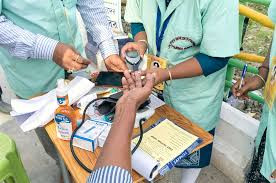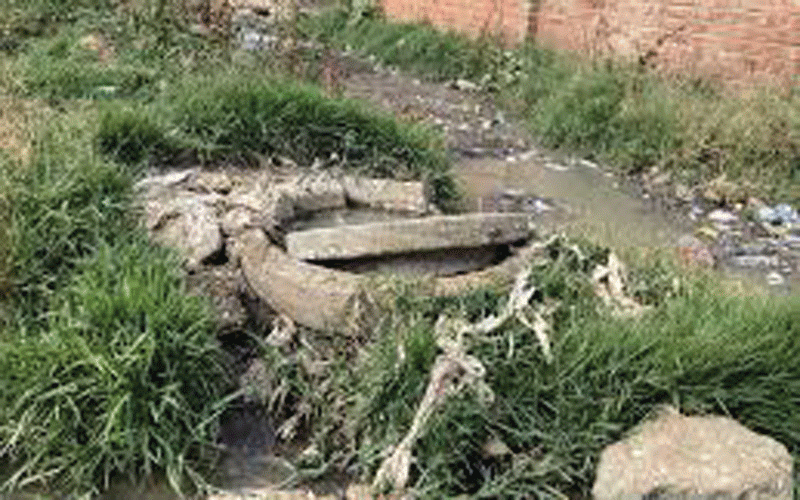
By Tambudzai Manjonjo
T
he health system in Zimbabwe is in crisis, a crisis that has lasted for years, with consistent reports of a failing public health system.
The failures in the health system have affected marginalised and vulnerable populations the most, including women and children in rural areas, and other groups that tend to be the most impacted by disasters and pandemics like HIV, TB, Covid-19, cholera, droughts, floods and other climate-change-related crises.
As a result, profound health inequalities are rampant, where only the monied can access quality healthcare through the expensive private healthcare system.
Public healthcare is underfunded, leading to outdated and crumbling infrastructure, shortages of essential drugs and equipment, poor or non-existent emergency services and a dwindling health services workforce due to poor remuneration and service standards.
Some indicators of the adverse effects of the crisis include the high maternal mortality rate in Zimbabwe, currently estimated at 362 per 100 000 live births, and the high burden of diseases.
The recent announcements by the United States (US) government of significant budget cuts to foreign health aid funding have made an already terrible situation worse.
- Multisectoral COVID-19 messaging campaign improving prevention and vaccine uptake in Zimbabwe
- Unicef commends govt, partners for continuity of essential health and nutrition services
- Multisectoral COVID-19 messaging campaign improving prevention and vaccine uptake in Zimbabwe
- Unicef commends govt, partners for continuity of essential health and nutrition services
Keep Reading
This is so because Zimbabwe has been a major recipient of foreign aid for its health budget, under mechanisms such as the Health Transition Fund (HTF) and the Health Development Fund (HDF), which are pools created to include foreign financing support and other development funding assistance.
According to a 2023 World Bank report, Zimbabwe's health budget received about US$2 billion in total from external funders using these mechanisms from 2015 to 2020.
Zimbabwe also received approximately US$ 170 million in health funding from the US in 2023, including HIV funding, general healthcare, and reproductive healthcare funding. Zimbabwe's historically high dependency on development health assistance, at approximately 36% of the budget in 2019, is well documented.
The US President's Emergency Plan for Aids Relief (Pepfar) has traditionally provided the highest amount of funding for the global HIV response, amounting to approximately US$6 billion annually, and directly funding about 17% of Zimbabwe’s HIV funding.
The US has also previously provided approximately US$8,5 billion in global health funding, funding governments and multilateral institutions like the World Health Organisation (WHO) and the Global Fund to Fight Aids, Tuberculosis, and Malaria (Global Fund).
In addition to funding drugs and treatment for HIV and TB management, this funding has also been earmarked for strengthening health infrastructure and funding healthcare workers.
Although there has been some relief for continuation of Pepfar funding, with the US Congress stopping some of the proposed US government reductions, it is uncertain how existing PEPFAR funds will be administered in the absence of staff at USAid and the Department of State, and whether future funding will be allocated for Pepfar.
Zimbabwe also receives a considerable portion of its HIV management funds from the Global Fund and some support from the World Health Organisation and other multilateral institutions.
However, the Global Fund has recently announced significant cuts and re-prioritisation of funds because of the US reduction in funding, and Zimbabwe is also affected.
With such significant dependency on foreign aid to finance healthcare, it is no surprise that the funding cuts by the US and, increasingly, other bilateral donors, are most likely to impact healthcare availability in Zimbabwe significantly.
It will take time to measure impact accurately. Still, there are already reports of severe reductions in HIV prevention and management programmes, with a disproportionate effect on key populations programmes, whose programmes were mainly funded through foreign aid.
Plugging this gap brings domestic resource financing into sharp focus.
In terms of policy, the government of Zimbabwe has put in a lot of work to raise and ringfence funds to fund healthcare domestically, such that it should be possible to depend less on precarious and unpredictable foreign funding.
Taxation is the dominant funding source for the government's domestic public health financing. In addition to general national budgeting, several taxes are officially ringfenced for health financing.
These include the 3% Aids levy that is part of income tax, a 5% tax on mobile airtime and data, a 2% tax on electronic financial transactions and a ‘sugar tax’ on cordials and juices.
Despite the existence of these funding mechanisms, the national budget has continued to rely heavily on foreign funding for health, and the national budget allocation for health remains below 15%, which is not in line with the Abuja Declaration to allocate at least 15% of the budget to health funding.
Notwithstanding the devastating implications of the loss of US funding for health, there have not been any public announcements by the government of urgent measures to plug the gap.
The Health and Childcare minister was recently quoted as having assured Parliament, in the wake of the initial US funding cuts, that the country had an adequate supply of HIV drugs for six months (from February 2025).
He stated that procurement was ongoing for drugs to last the year.
Beyond that, no detailed information has been provided on the government’s efforts to plug the funding gaps.
Therefore, questions arise about the funding earmarked for healthcare services and development without transparent government reporting on its use.
A health rights advocacy organisation, the Zimbabwe Doctors for Human Rights, could only recently obtain information from the Ministry of Health accounting for the "sugar tax" after a complaint to the Media Commission when the ministry declined to provide the information willingly.
The dearth of publicly available information also applies to the other taxes officially earmarked for healthcare.
Only the National Aids Council, responsible for administering the funds raised from the AIDS levy, has publicly available information on the use of the funds allocated to it, as stated on its website and reports.
The other levies, not being entrusted to any formal specialised entity, do not have the same kind of reporting.
The government also recently announced the intended refurbishment of major public hospitals, starting with Parirenyatwa Hospital.
Still, questions about transparency in the funding model, allocation and procurement processes have been raised.
There have also been concerns about the divide between budget allocations and actual disbursement and spending that affects social development programming, including healthcare, pointing to some bureaucratic issues affecting domestic financing.
Transparency is key in ensuring accountability for public funds, and this is where the issue of domestic funding for health becomes key.
The public needs to be aware of how public funds are being utilised and the availability of continued healthcare access.
The government should take the nation into its confidence, and a starting point would be a transparent public accounting of the funds collected under the ‘health’ taxes.
Transparency and accountability would ensure the prudent and responsible management of these funds and help unlock further domestic financing, including from the private sector.
Despite a historically poor economic outlook, Zimbabwe has made significant gains in improving health access due to targeted interventions, especially in the management of the HIV pandemic, with the result that it is reported to have reached the UN 95-95-95 goals (where 95% of people who are HIV+ know their status and are on treatment).
These gains have been achieved with a lot of foreign development assistance, but with a large portion of domestic financing as well, through the Aids levy.
Domestic financing is no longer just an option, but a necessity to maintain progress, stem regression, and improve the nation's general health in the context of drastically reduced foreign funding.
The government must scale up and enhance the existing accountability mechanisms, like the current programme-based budgeting system, and improve coordination and transparency in budget planning, procurement, and spending.
Regular public updates and information-sharing will also enhance public confidence and awareness, which will significantly help stem misinformation and improve health-seeking in the wake of the panic generated from the reports of the loss of funding.
*Tambudzai Manjonjo is the deputy director of the Southern Africa Litigation Centre









